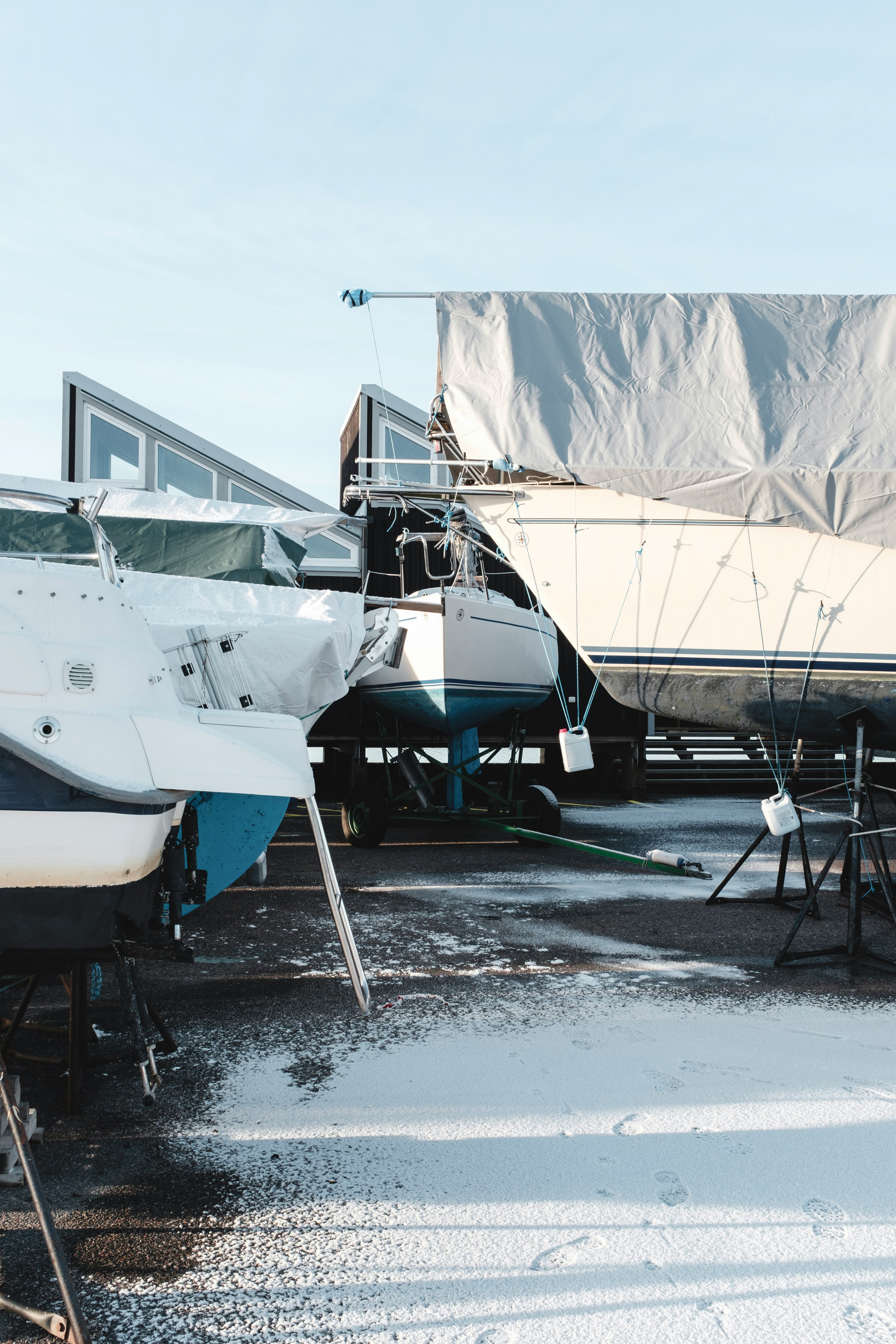Winter is coming, which means it’s time to start thinking about off-season boat care. Taking the right steps to prepare now can save you time, money, and potential headaches down the line. Here’s what to keep in mind to get your boat set and ready.
Winterizing in a Few Easy Steps
Winterizing is more manageable than you might think. Here’s how to do it without overcomplicating the process:
Flush and Clean the Engine
Over time, your boat’s engine accumulates salt, grime, and other debris, especially if used in saltwater. Flushing and cleaning the engine before winter helps protect it from rust, corrosion, and clogs. Start by:
- Rinse with freshwater
- Use specialized engine cleaner
- Inspect spark plugs and fuel lines
Drain and Antifreeze
Adding antifreeze prevents water in the system from freezing, which can crack pipes and hoses. Focus on:
- Drain the freshwater system
- Add marine-grade antifreeze
- Check drain plugs
Fuel and Oil Check
Fuel and oil maintenance is essential for engine health. Over winter, stale fuel can damage the engine and old oil can corrode internal parts. Here’s how to handle it:
- Add fuel stabilizer
- Change the oil and filter
- Fill the fuel tank
Disconnect the Battery
Your battery needs some attention over the winter as well. A disconnected battery prevents power drainage, saving you from costly battery replacements come spring. Here’s what to do:
- Fully charge the battery
- Disconnect and store safely
- Use a trickle charger
Cover Up
A quality cover is super important for keeping your boat clean, dry, and protected from the elements. Consider these tips:
- Use a waterproof, UV-resistant, and durable cover (preferably shrink wrap)
- Secure it properly so it doesn’t shift or tear
- Check for ventilation to prevent moisture buildup
» MORE: Boat Winterization and Engine Maintenance Tips
Winter Storage Options
It’s important to decide where and how to store your boat over winter. Here’s a quick look at each option:
- Marina Storage: This can be convenient, especially if your marina offers winter services. However, it might come at a higher price. The upside? You don’t have to worry about transportation or additional coverage if you keep it on-site.
- DIY Winterization: Doing it yourself can save money, but it’s essential to follow a winterization plan similar to the steps outlined above. Miss a step, and you might deal with costly damage come spring.
- Professional Service: Professional storage often includes perks like climate-controlled environments and regular check-ups. It’s the priciest option but might be worth it for added peace of mind.
Winter Lay-Up Incentives: The Benefits of Going Seasonal
If you’re storing your boat for the winter, why not take advantage of some savings? At SkiSafe, we offer discounts for boat owners who keep their boats laid up for a certain amount of time. Think of it as a reward for keeping your boat out of the water when conditions are less than ideal.
SkiSafe’s Boat Insurance Lay-Up Discount: How to Qualify
To qualify, your vessel must:
- Remain fully covered during the lay-up period
- Not be navigated
- Not be used as a live-aboard
- Be properly winterized and not ready for immediate use
This discount is a great way to keep your boat insured without paying full-season rates when it’s not in use.
» MORE: Winter Layup Boat Insurance Discount
Why Coverage Matters All Year Round
Even if your boat is out of commission for a few months, keeping your insurance active throughout the entire year is critical.
Here’s why it’s worth maintaining coverage:
- Theft or Vandalism Risks: Boats in winter storage can still be targets for theft or vandalism (especially if stored outdoors).
- Damage Protection: Weather-related incidents, accidental damage, and even environmental damage are still possible. All boats are susceptible to damage whether in use or not.
- Lender Requirements: If your boat is financed, most lenders will require year-round insurance.

